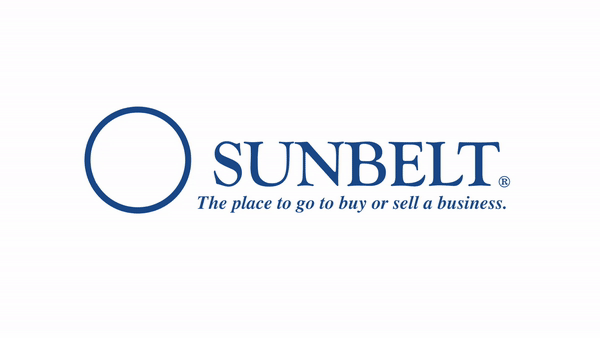3 Factors That Influence When You Should Sell Your Business
- Dan Elliott

- Jun 11, 2024
- 4 min read
Updated: Jun 17, 2024

Have you ever wondered if now is the right time to sell your business? Selling your business is an important decision that requires careful consideration of several factors. At Sunbelt Texas, we understand that the right timing can maximize the value of your business sale and ensure a smooth transition.
In this article, we will discuss the factors that influence when you should sell your business. By understanding these factors, you can make a well-informed decision that aligns with your objectives and enhances your business's potential.
Timing is Everything: 3 Key Influencers
Before exploring the specific factors, it's essential to understand why timing matters.
Selling your business at the right time can help you achieve a higher sale price, attract the right buyers, and ensure a smooth transition. Conversely, selling at the wrong time can result in a lower sale price and a more difficult sale process.

Factor 1: Market Conditions
Market conditions are vital in determining the right time to sell your business. The broader economic climate, industry trends, and buyer demand are all critical components that can significantly impact your sale.
Economic Climate
The economic climate affects buyers' purchasing power and willingness to invest. During times of economic growth, interest rates are typically low, and consumer confidence is high, making it easier to find willing and capable buyers.
Pay attention to economic indicators such as inflation, GDP growth, and unemployment rates to gauge the economic climate.
Industry Trends
Industry-specific trends and cycles can also influence the timing of your sale. For instance, technological advancements, regulatory changes, or shifts in consumer preferences can create favorable conditions for selling a business.
Staying informed about your industry's trends can help you identify the best time to sell.
Buyer Demand
High buyer demand increases the chances of receiving competitive offers for your business. Identifying periods when there is a high level of buyer activity can be beneficial.
Market research and insights from a business broker can help you understand and capitalize on current buyer demand.
Factor 2: Business Performance
Your business's performance is a crucial determinant of its attractiveness to potential buyers. Strong financial health, growth potential, and operational efficiency can significantly enhance your business's value.
Financial Health
Your business must demonstrate solid financial performance to attract buyers and secure a favorable sale price.
Ensure your business has stable and growing revenue, healthy profit margins, and solid financial metrics such as EBITDA. Buyers particularly appreciate consistent financial health over several years.
Growth Potential
Buyers are interested in businesses that show potential for future growth.
Highlighting expansion opportunities through market penetration, new product lines, or geographic expansion can make your business more attractive. Demonstrating a clear growth strategy can significantly increase your business's value.
Operational Efficiency
Efficient operations make your business more appealing and accessible when transitioning to a new owner.
Streamline your processes, reduce inefficiencies, and ensure your operations are well-documented. This will improve profitability and make the business more accessible for potential buyersto manage.
Factor 3: Personal Readiness
Your readiness to sell is just as important as market and business factors. Aligning the sale with your personal goals and ensuring you are emotionally prepared can make the process smoother and more successful.
Owner's Personal Goals
Your personal and financial goals should guide the timing of your sale.
Whether considering retirement, starting a new venture, or seeking more work-life balance, your goals will influence when it's the right time to sell. Make sure that the timing aligns with your long-term plans and aspirations.
Succession Planning

A well-thought-out succession plan ensures a smooth transition for the new owner. This involves identifying and preparing a successor, whether it's a family member, key employee, or external buyer. A robust succession plan can increase your business's value and attractiveness.
Emotional Preparedness
Selling a business is an emotional decision. Being mentally and emotionally prepared for the sale is crucial.
Consider the psychological aspects of letting go and prepare yourself for the transition. Working with a business broker can help you navigate this emotional journey and prepare you for the change.
Wrapping Up: Make the Right Move
Timing is everything when it comes to selling your business. By considering market conditions, business performance, and personal readiness, you can make a well-informed decision that maximizes the value of your sale.
At Sunbelt Texas, we provide personalized advice and assistance to help you navigate this important decision. Contact us today to discuss your business and explore the best timing for your sale.
FAQs
When is the best time to sell my business?
The best time to sell your business is when market conditions are favorable, your business is performing well financially, and you are personally ready for the transition. Economic growth, high buyer demand, and strong industry trends are critical indicators of a good time to sell.
How can I determine the value of my business?
A business broker can help you determine the value of your business through a thorough valuation process. This includes analyzing financial statements, market conditions, and industry trends to estimate your business's worth accurately.
What is the typical timeframe for selling a business?
The duration required to sell a business can significantly differ based on its complexity, current market conditions, and buyer demand. On average, it can take anywhere from six months to a year to complete a business sale.




thanks for the interesting content